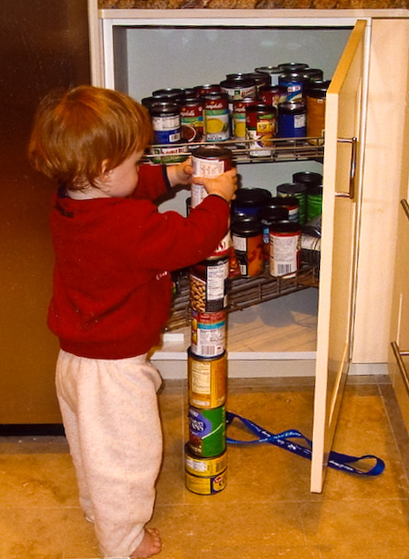I am a firm believer that we become more human through dialogue with the “Other” — whether that means people with disabilities, the poor, societal outcasts, people from different cultures, or otherwise.
 That said, I believe that autism is definitely a phenomenon that “normals” can learn from — I’ve even written a book on the subject (hopefully, one that has been read by dozens of people on this planet).
That said, I believe that autism is definitely a phenomenon that “normals” can learn from — I’ve even written a book on the subject (hopefully, one that has been read by dozens of people on this planet).
But before I say anything about it, let’s see if anyone else has commented on this mysterious “other.”

Barry Levinson’s great 1988 film “Rain Man” is a fantastic example, even if it presents only one of the many faces of autism (how could the complexity of the autism spectrum ever be encapsulated into one movie?).
For those of you who haven’t seen the movie, it follows newly orphaned yuppie Charlie Babbitt (Tom Cruise) as he gets to know Raymond (Dustin Hoffman), the institutionalized autistic savant brother he never knew existed.
Charlie discovers Raymond’s existence after the death of his estranged father, Sanford Babbitt. In his will, Sanford left Charlie a car and some rose bushes, while leaving $3 million to a mental institution that is home to — you guessed it — Raymond Babbitt.

Charlie then kidnaps Raymond on a cross-country trip back to his home in Los Angeles, where he intends to start a custody hearing in order to obtain his share of his father’s estate.
Don’t worry, I have no intention of rehashing film’s plot, thereby spoiling it for those who have yet to see it, boring those who have seen it already, and wasting the time of those who have no interest in seeing it.

What I want to talk about is the change we see in Charlie as the film progresses. At first, he is a classic self-absorbed, spoiled twenty-something yuppie. He is very rude to Raymond, whom he is only using to get his father’s money.
As for the money, he exhibits the typical possessiveness of sinful humanity with regard to the goods of this world by repeatedly asserting: “I deserve this.”
 By the end of the film, after spending a great deal of time with Raymond, he is a changed man. He becomes much more sensitive and caring, and he develops a protective instinct toward his brother. Folks will recall the famous scene at the end pictured above (“I like having you for my big brother”).
By the end of the film, after spending a great deal of time with Raymond, he is a changed man. He becomes much more sensitive and caring, and he develops a protective instinct toward his brother. Folks will recall the famous scene at the end pictured above (“I like having you for my big brother”).
In fact, though he continues to pursue the custody hearing, his motivation changes. He is no longer interested in “getting his share” of his father’s estate. What he wants now is to take Raymond out of the institution so that he can care for him personally, as a brother.
Granted, any opportunity to spend a great deal of time getting to know a fellow human being has the potential to change our hearts. Man is made for fellowship, and fellowship both affirms our individuality and enhances our humanity.
But is there anything in Raymond’s autism that could have captured Charlie’s heart?

One thing we can point to is Raymond’s remarkable simplicity. In a world where competition and competitiveness seem to complicate everything, where people are all too willing to hurt one another to get what they want, we have a man whose wants are very simple.
If he can watch “The People’s Court” at the same time every day, if whoever is with him can be bothered to make sure he has his favorite pair of underwear, if he can maintain a stable routine to get him through the day, then he is well-satisfied.
And as far as wanting to hurt anyone, he seems totally unfamiliar with the concept.
Personally, I would like to think that what Charlie learns from being with Raymond — and what most of us could learn from autistic individuals — is a sense of humility, which above all else involves a realistic understanding of oneself. And though this is going to sound clichéd, it also leads to the freedom of appreciating the things that really matter.
All that said, I do intend to offer my own thoughts on the autism phenomenon in the coming days. In the meantime, if you haven’t already, see “Rain Man.”
Top two photos from Wikipedia; remaining photos obtained through a Google image search
Read Full Post »













